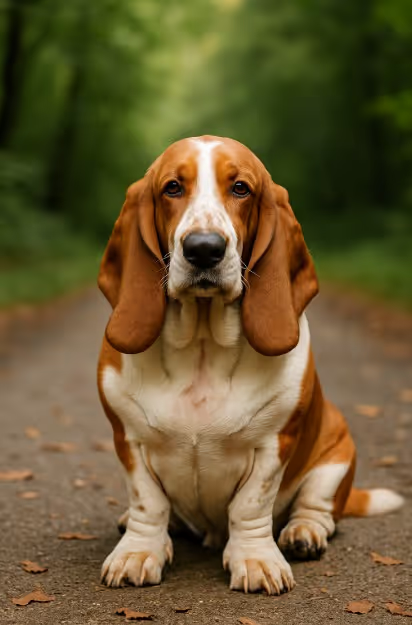The Basset Hound is a lovable, low-slung scent hound known for its long ears, soulful eyes, and incredible nose. Originally bred for tracking game, the Basset combines a calm and affectionate nature with a stubborn streak, making them both charming and comical. They are great family companions, gentle with children, and adaptable to various living situations, provided they get regular exercise and mental stimulation.

The Basset Hound originated in France in the 16th century, developed by crossing various scent hounds to create a dog with a low stature for hunting small game, especially rabbits and hares. Their name comes from the French word bas, meaning “low.” Brought to England in the 1800s and later refined, the Basset became a favorite for both hunters and companions. Recognized by the American Kennel Club in 1885, they have since become iconic for their unique look and endearing personality.
A sturdy, heavy-boned hound with a long body, short legs, and expressive features.
The short coat is easy to maintain, but ears and skin need special attention.
While calm indoors, Bassets still require daily activity to stay fit.
Bassets are intelligent but can be stubborn and easily distracted by scents.
A balanced diet is important to prevent obesity.
Basset Hounds are generally healthy but prone to certain issues due to their build.
Bassets are widely available through breeders and rescues.
Are Basset Hounds good apartment dogs?
Yes, if exercised daily; they are generally calm indoors.
Do Basset Hounds bark a lot?
They have a deep, loud bark and may bay when excited or following a scent.
Are they good with kids?
Yes, they are gentle and patient with children.
Do they shed?
Yes, moderately throughout the year.
Are Basset Hounds easy to train?
They can be stubborn and distracted by smells, but respond well to patient, positive training.
Do Basset Hounds drool?
Yes, especially after drinking or eating.
Can they be left alone?
They can tolerate short periods alone but prefer companionship.